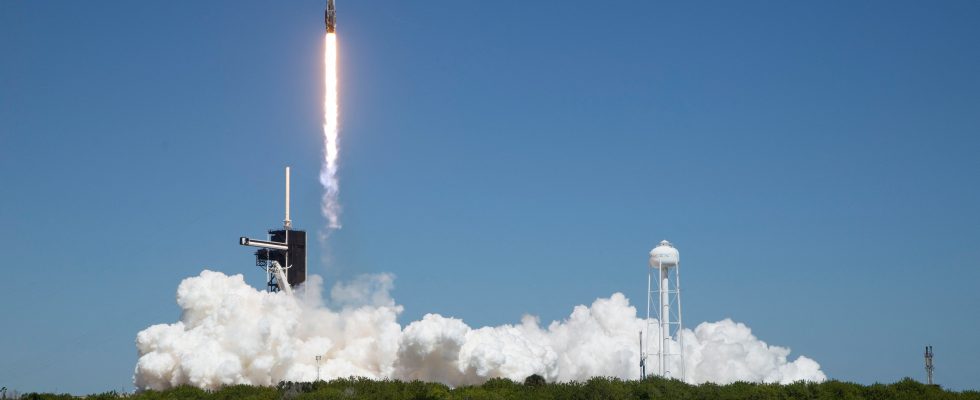The International Space Station is preparing to welcome a new nationality on board: two Saudi astronauts will take off on Monday May 8 at 10:43 p.m. (4:43 a.m. on Tuesday May 9 in France) for the module in orbit around the earth. Saudi Arabia, long the only Arab country to have sent one of its citizens into space since Prince Sultan in 1985, confirms its space ambition. Notably for the ultra-conservative country, a woman will be part of the mission.
Breast cancer researcher Rayana Barnawi and fighter pilot Ali al-Qarni will fly from Cape Canaveral, Florida. “The country has been working on reforms to change the role of women in society for several years. Sending a woman into space is a symbol of these advances”, maintains with L’Express Sussan Saikali, associate researcher at the Arab Gulf State Institute in Washington.
The kingdom is effectively trying to present a smooth image of its rigor on women’s rights since the coming to power of Mohammed Bin Salman in 2017. The new crown prince has promoted the Vision 2030 plan, a vast investment program which aims to bring the country out of its dependence on oil and impose it on the international scene, in particular through progress on the conditions of women.
The United Arab Emirates as pioneers
Space, a long game of power between the great powers, is becoming an element of influence for the country. “Saudi Arabia wants to reconnect with its glorious past,” said Eckart Woertz, director of the GIGA Institute for Middle East Studies, referring to the 1985 Discovery mission.
In the International Space Station, the two Saudis will find the team already there, including an Emirati, Sultan al-Neyadi. “The United Arab Emirates are also very present and have shown their capacity in 2020 by launching a probe around Mars” recalls the researcher. The probe, in Mars orbit since 2021, has put the Emirates on the map of space powers, with the country becoming the fifth to successfully complete a mission of this magnitude. However, the small Gulf state’s space ambitions collided with the moon’s soil on Tuesday, April 25. A mission, launched by the Japanese start-up Ispace carrying in particular an Emirati rover, lost contact during the moon landing, probably due to a crash. This mission would also have been the first for Japan and especially for the private sector, which accentuates its influence on the conquest of space.
The Saudi mission is also led by a company – American this time – Axiom Space, the first to make commercial flights to the ISS. Since the beginning of the 2000s, the conquest of space has been developing in particular around private actors – Elon Musk and SpaceX in the lead.
Bahrain and Oman want their share
Saudi Arabia and the United Arab Emirates have signed the Artemis chords in 2020, around the new American lunar program. “There is a competition, but it is a healthy competition between the two allies”, underlines Sussan Saikali. Surrounded by the great historical powers in the conquest of space, “the two countries will catch up. They have the necessary strategy and above all the economic resources to achieve this.”
They are not the only ones in the area. At the same time, Bahrain should launch its first satellite manufactured entirely on its territory at the end of 2023, when Oman is preparing its future launcher, the first in the Arab world.
